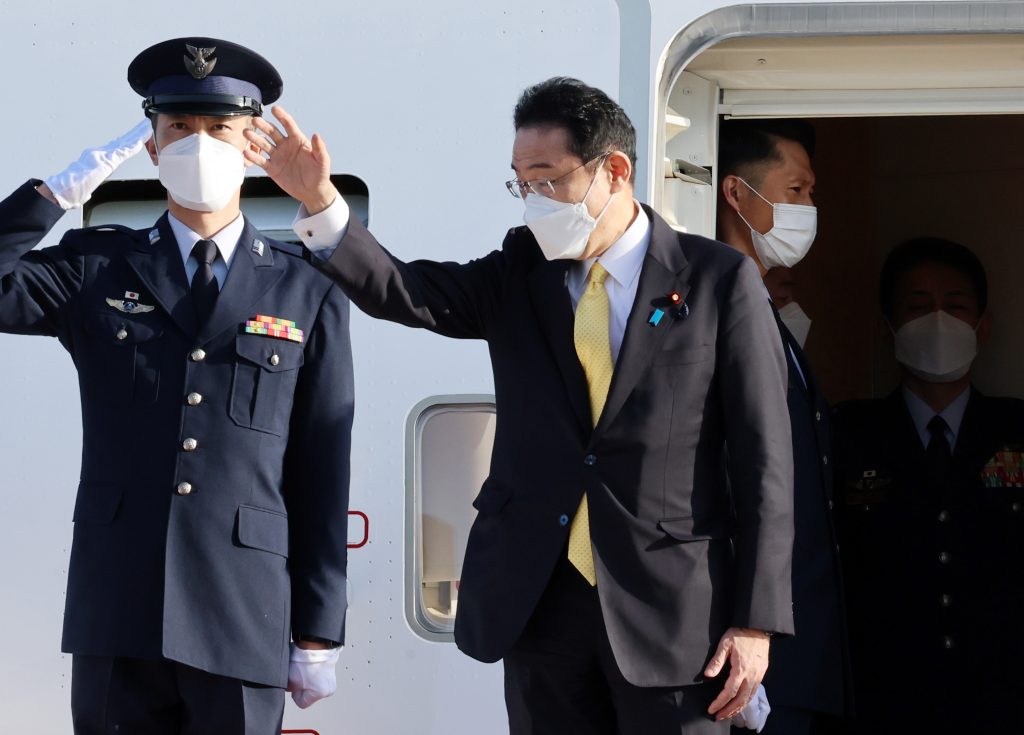2023 marked 70 years of diplomatic relations between Cambodia and Japan. To commemorate this anniversary, Phnom Penh and Tokyo elevated their ties to a comprehensive strategic partnership (CSP). This positions Japan at the highest echelon within Cambodia’s three-tier hierarchy of foreign relations, a position previously exclusively reserved for China since 2010.
This agreement, reached during Japanese Prime Minister Fumio Kishida’s visit to Phnom Penh in 2022, embeds a strategic adjustment in Cambodia’s foreign relations. It underscores Cambodia’s strategic intent to delicately balance China’s increasing influence and the West’s pressure over Cambodia’s democratic backsliding. In this context, the attention shifts to Japan and its potential role as a leverage point for Cambodia in navigating the complex terrain of US–China strategic rivalry.
Under this upgraded relationship, areas for future cooperation with Japan have emerged. Stronger economic interdependence will create a solid foundation for a mutually beneficial relationship. This aligns with Cambodia’s strategy of economic diversification. The Cambodia–Japan CSP also benefits Tokyo, which is actively seeking security deterrence in response to Beijing’s assertiveness in the South China Sea and is aiming to secure vital sea lanes of communication. This new partnership could also help disprove any lingering suspicions of a Chinese naval presence in Cambodia.
As emphasised during Kishida’s visit to Cambodia, Cambodia and Japan’s upgraded partnership also revolves around digital technology, economic collaboration and security cooperation. While Japan is the United States’ closest strategic ally in Asia, Japan’s approach to Cambodia appears to be in stark contrast to Washington’s, especially on human rights and democracy. In July 2023, the United States questioned the ‘freedom and fairness’ of the Cambodian general election. In contrast, Japan remains the only democratic country to support and recognise the legitimacy of the Cambodian government.
As China continues to back the regime in Cambodia, it makes perfect sense that Japan go along for the ride. This is because Japan’s less confrontational approach to Cambodian democracy is well-received by Cambodia’s ruling elites, who in return pledge their support for Japan’s global initiatives, including its Free and Open Indo-Pacific Strategy and new National Security Strategy. Cambodia’s attempt to strike a balance with China by involving Japan showcases its independent foreign policy stance.
Japan’s substantial economic engagement with Cambodia has significantly contributed to Cambodia’s progress in trade, development and foreign direct investment. Although China surpassed Japan as Cambodia’s primary source of official development assistance in 2007, Japan remains a crucial player. Cambodia has hosted 210 Japanese investment projects totalling US$3.1 billion since 1994. Japan–Cambodia bilateral trade reached US$1.95 billion in 2022. This economic collaboration underscores Japan’s strategic importance and aligns with Cambodia’s objective of diversifying international engagements beyond reliance on China. Maintaining ties with Japan prevents a Chinese monopoly in Cambodia’s economic relations, safeguarding its independent foreign policy.
A new angle in Japan–Cambodia cooperation is the expansion of defence assistance amid Beijing’s efforts to increase military cooperation with Phnom Penh and other Southeast Asian states. In early 2023, Cambodia endorsed Japan’s new National Security Strategy, which China sees as a provocation.
Japan’s willingness to dispatch its Maritime Self-Defense Force to the Ream Naval Base on Cambodia’s southern coast signals a departure from mere economic assistance. The Ream Naval Base, recently accused by the United States of hosting the Chinese Navy, adds a layer of complexity to Cambodia’s strategic landscape. During the ASEAN–Japan Commemorative Summit in Tokyo in December 2023, Cambodia and Japan also agreed to establish defence senior officials’ talks.
In the context of US–China strategic rivalry, Cambodia has often been labelled a virtual client state of China. While Chinese economic reliance has consolidated the power of Cambodia’s ruling elites, the risks of over reliance cannot be overlooked. The challenge for Cambodia lies in balancing interest maximisation and risk mitigation. Japan has emerged as a sophisticated partner for Cambodia’s strategic diversification.
While concerns may arise over potential Chinese backlash due to Cambodia’s shift towards Japan, Phnom Penh’s adept balancing has subtly elevated China above its existing highest status. The newly established Cambodia–China Diamond Hexagon cooperation framework implicitly aspires to move China beyond the scope of a CSP. As Cambodia looks to the future, it is important to sustain and enhance strategic communication with all of its foreign counterparts, reinforcing its commitment to a diversified foreign policy without antagonising any major power.
The Cambodia–Japan CSP is more than a diplomatic milestone. It embodies the evolving dynamics of Cambodia’s foreign relations. Cambodia has assumed a nuanced role in the broader geopolitical landscape, fostering ties with potential third parties like Japan beyond the sphere of US and Chinese influence. It is also in Japan’s interests to foster a more resilient and autonomous Southeast Asia where China is not the sole option for cooperation.
Japan is boosting its proactive regional diplomacy, showcasing that it is not only an economic powerhouse, but also a potential alternative for cooperation and a defender of the rules-based global order. This is evidenced by Japan’s upgraded ties with Vietnam, the inclusion of Malaysia in its Overseas Security Assistance initiative, its coast guard agreement with the Philippines and the provisioning of patrol vessels to Indonesia. As the Japan–Cambodia CSP develops, it will serve as a testament to the delicate art of diplomatic balancing in an era marked by increasing tensions between Beijing and Washington.
Chhay Lim is a Visiting Fellow at the Center for Southeast Asian Studies at the Royal University of Phnom Penh and Young Leader at the Pacific Forum. He is also a Japanese Government-MEXT scholar at Ritsumeikan University.

